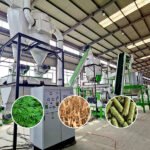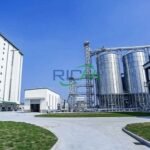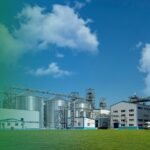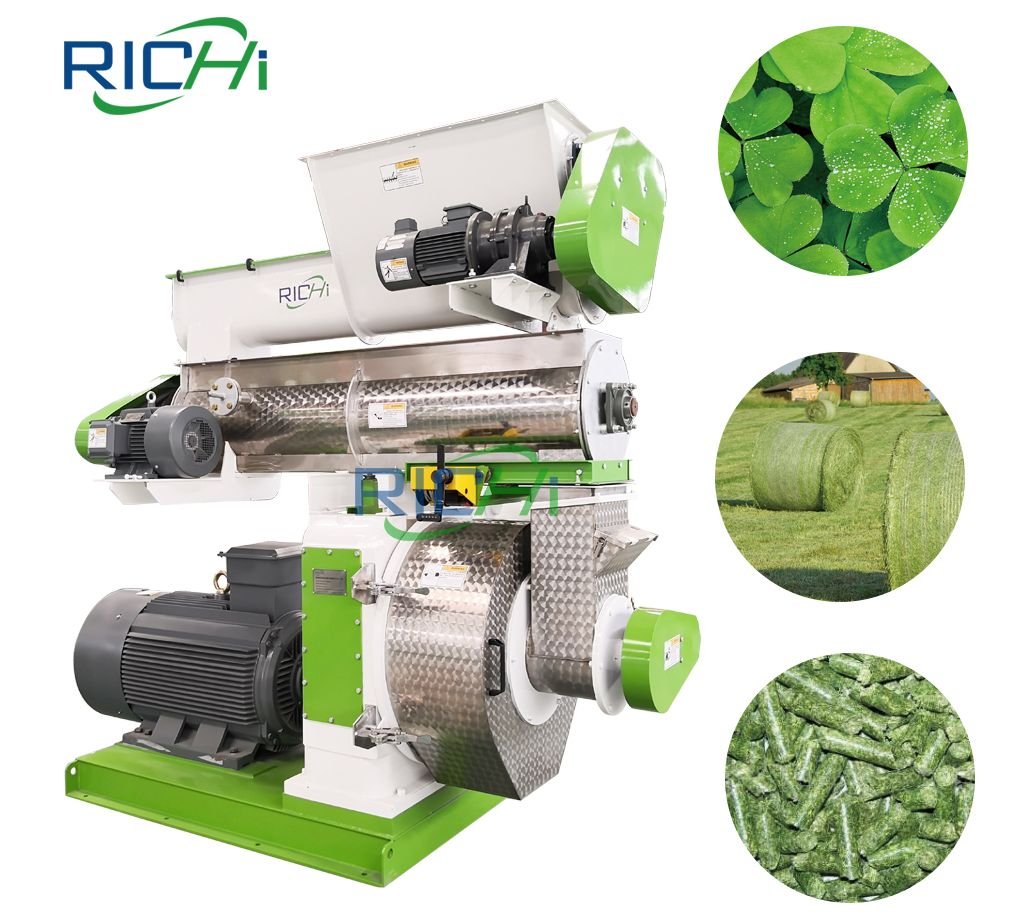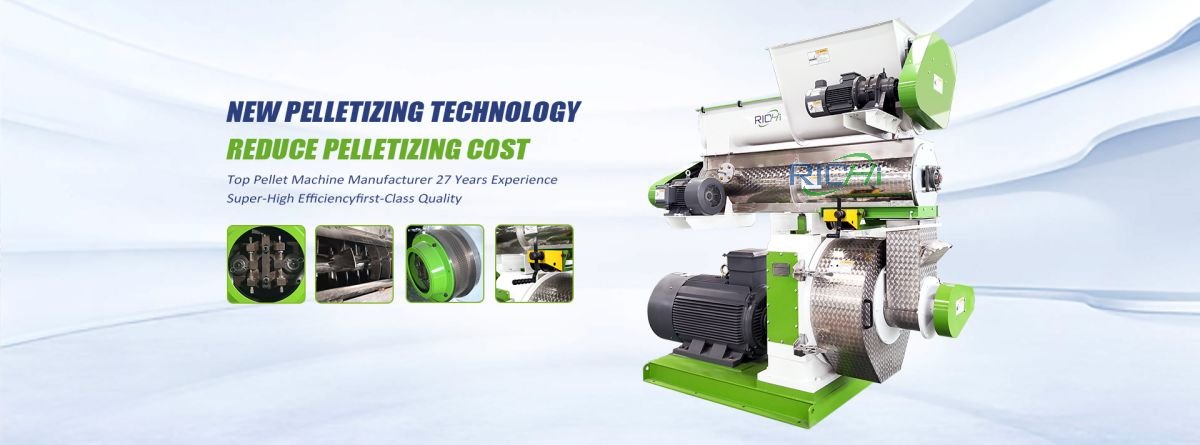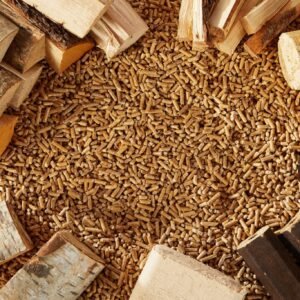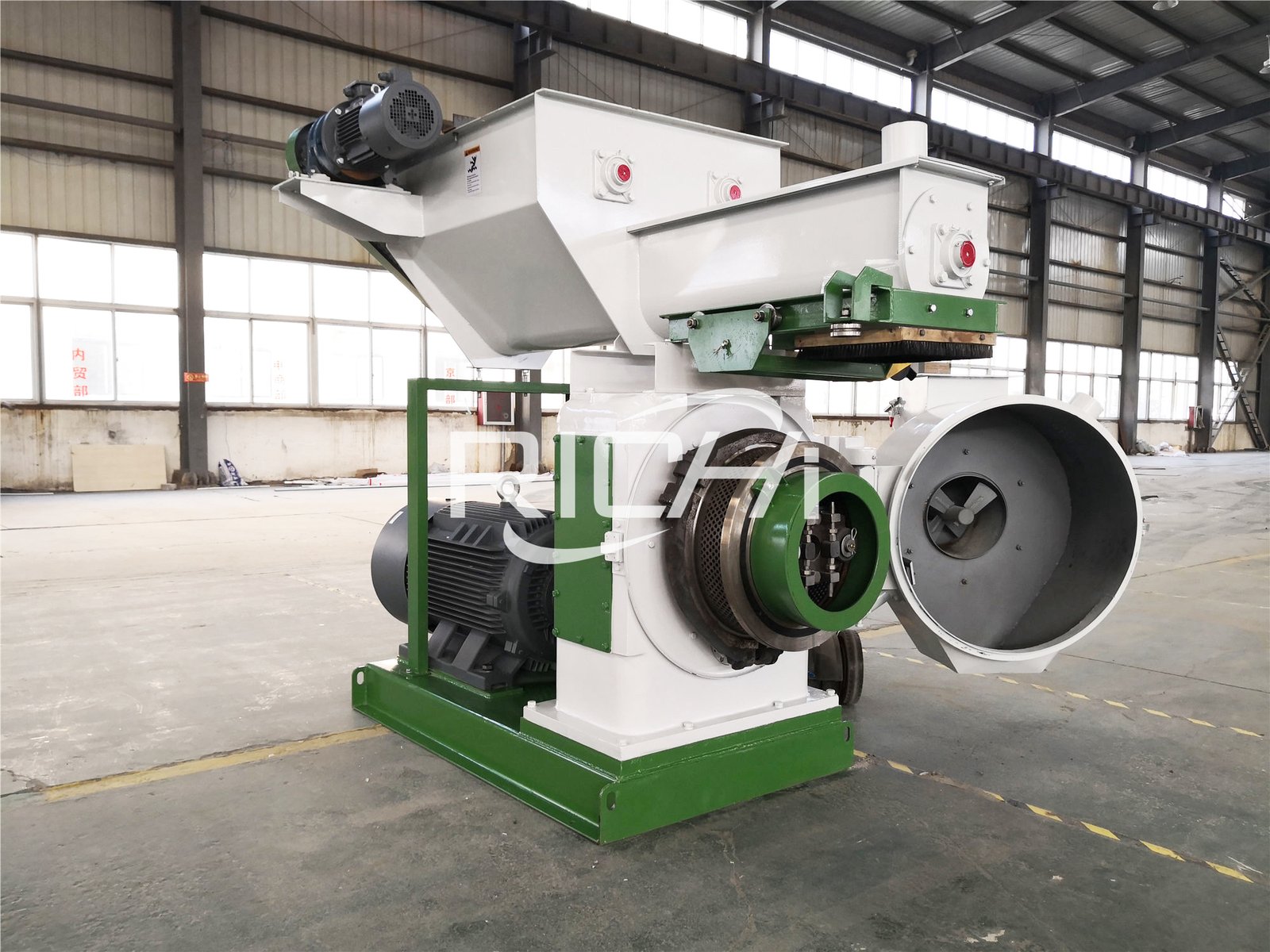Alfalfa pellet machines are essential in converting alfalfa into compact, manageable pellets, which offer numerous benefits across various industries. Here are the primary application scenarios for these machines:
1. Animal Feed Production
Alfalfa is highly valued in animal nutrition due to its rich protein, fiber, and mineral content. Alfalfa pellet machines are widely used to produce feed pellets for various livestock and pets:
- Cattle Feed: Alfalfa pellets are commonly used in dairy and beef cattle diets, providing essential nutrients and improving feed efficiency.
- Horse Feed: Equine diets benefit from the consistency and storage ease of alfalfa pellets.
- Rabbit and Small Animal Feed: Nutritious alfalfa pellets are a staple in the diets of rabbits and other small animals.
Advantages:
- Improved Digestibility: Pellets are easier for animals to digest compared to loose hay.
- Reduced Feed Waste: Pellets minimize waste and spillage.
- Easier Storage and Transportation: Compact pellets are easier to handle and store.
- Consistent Nutritional Content: Ensures uniform nutrition across batches.
2. Organic Fertilizer Production
Alfalfa pellets are increasingly used in the organic fertilizer sector due to their high nutrient content:
- Soil Amendment: Rich in nitrogen, alfalfa pellets improve soil fertility and structure.
- Slow-Release Fertilizer: The pellet form allows for a gradual release of nutrients, benefiting plant growth.
- Composting Accelerator: Enhances composting processes by speeding up decomposition and enriching compost.
Advantages:
- Enhanced Soil Health: Adds valuable nutrients to the soil.
- Sustainable Farming: Supports organic farming practices.
3. Biomass Fuel Production
As renewable energy becomes more critical, alfalfa pellets are used as a biomass fuel source:
- Residential Heating: Alfalfa pellets are used in pellet stoves for efficient home heating.
- Industrial Boilers: Utilized in large-scale boilers as a renewable energy source.
- Co-firing in Power Plants: Can be used alongside coal to reduce emissions.
Advantages:
- Renewable Energy Source: Helps reduce reliance on fossil fuels.
- Lower Carbon Footprint: Contributes to reducing greenhouse gas emissions.
4. Pet Food Industry
In the pet food sector, alfalfa pellets are used for herbivorous pets:
- Guinea Pig and Chinchilla Food: Forms a significant part of the diet for these small pets.
- Reptile Food: Beneficial for herbivorous reptiles, such as tortoises.
Advantages:
- Consistent Nutrition: Ensures uniformity in pet diets.
- Easy Portion Control: Simplifies feeding and portion management.
5. Aquaculture Feed
Alfalfa pellets are used in aquaculture for specific fish species:
- Tilapia Feed: Provides a plant-based protein source.
- Carp Feed: Helps in the dietary needs of certain carp species.
Advantages:
- Sustainable Feed Option: Reduces reliance on fishmeal and supports sustainable aquaculture practices.
6. Mushroom Cultivation
Alfalfa pellets are used to enhance mushroom cultivation:
- Substrate Supplement: Enriches growing substrates with additional nutrients.
- Moisture Retention: Helps maintain optimal moisture levels in mushroom beds.
Advantages:
- Improved Growth Conditions: Enhances nutrient availability and moisture control.
7. Erosion Control
In environmental management, alfalfa pellets aid in erosion control and revegetation:
- Slope Stabilization: Helps prevent soil erosion on slopes.
- Revegetation Projects: Provides nutrients and retains moisture to support new plant growth.
Advantages:
- Environmental Protection: Supports soil conservation and restoration efforts.
8. Research and Development
Alfalfa pellet machines are utilized in various research contexts:
- Feed Trials: Used in studies to assess nutritional impacts and feed efficiency.
- Soil Science Studies: Helps in experiments related to soil fertility and plant growth.
Advantages:
- Controlled Experimentation: Ensures consistency in research materials.
Conclusion
Alfalfa pellet machines serve a wide range of applications across multiple industries. From improving animal feed efficiency and contributing to organic fertilizer production to supporting renewable energy initiatives and aiding environmental conservation, these machines offer significant benefits. Their ability to convert alfalfa into convenient, high-quality pellets enhances storage, transportation, and overall utility in diverse applications.
As industries continue to seek sustainable and efficient solutions, the role of alfalfa pellet machines in transforming alfalfa into valuable products is likely to grow. Their versatility and efficiency make them crucial tools in modern agricultural and industrial practices.
Related post: feed mill pellet machine


